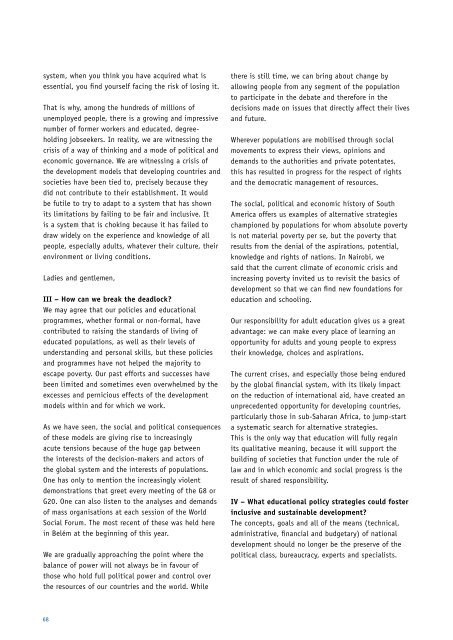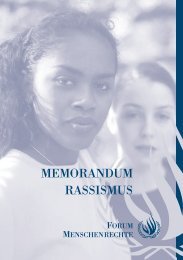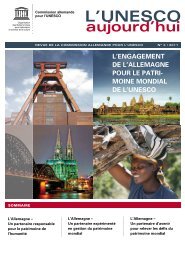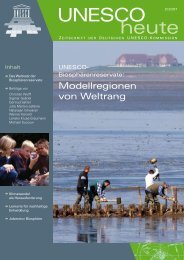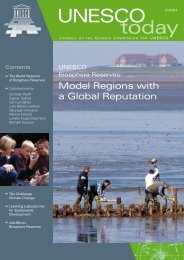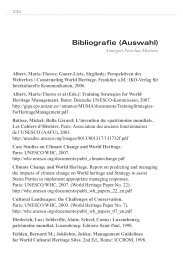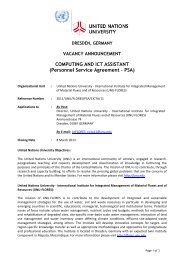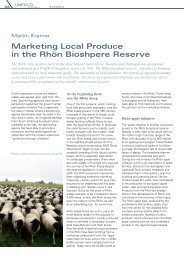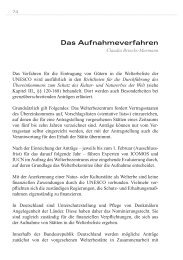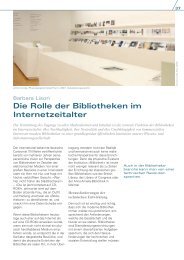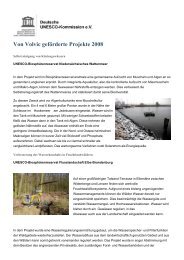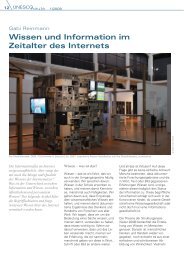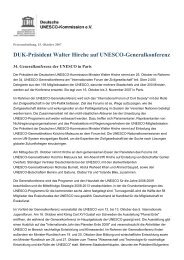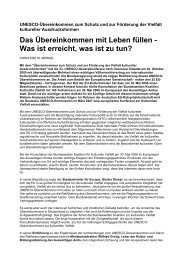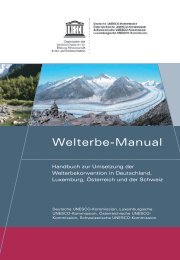CONFINTEA VI, final report - Unesco
CONFINTEA VI, final report - Unesco
CONFINTEA VI, final report - Unesco
Create successful ePaper yourself
Turn your PDF publications into a flip-book with our unique Google optimized e-Paper software.
system, when you think you have acquired what is<br />
essential, you find yourself facing the risk of losing it.<br />
That is why, among the hundreds of millions of<br />
unemployed people, there is a growing and impressive<br />
number of former workers and educated, degreeholding<br />
jobseekers. In reality, we are witnessing the<br />
crisis of a way of thinking and a mode of political and<br />
economic governance. We are witnessing a crisis of<br />
the development models that developing countries and<br />
societies have been tied to, precisely because they<br />
did not contribute to their establishment. It would<br />
be futile to try to adapt to a system that has shown<br />
its limitations by failing to be fair and inclusive. It<br />
is a system that is choking because it has failed to<br />
draw widely on the experience and knowledge of all<br />
people, especially adults, whatever their culture, their<br />
environment or living conditions.<br />
Ladies and gentlemen,<br />
III – How can we break the deadlock?<br />
We may agree that our policies and educational<br />
programmes, whether formal or non-formal, have<br />
contributed to raising the standards of living of<br />
educated populations, as well as their levels of<br />
understanding and personal skills, but these policies<br />
and programmes have not helped the majority to<br />
escape poverty. Our past efforts and successes have<br />
been limited and sometimes even overwhelmed by the<br />
excesses and pernicious effects of the development<br />
models within and for which we work.<br />
As we have seen, the social and political consequences<br />
of these models are giving rise to increasingly<br />
acute tensions because of the huge gap between<br />
the interests of the decision-makers and actors of<br />
the global system and the interests of populations.<br />
One has only to mention the increasingly violent<br />
demonstrations that greet every meeting of the G8 or<br />
G20. One can also listen to the analyses and demands<br />
of mass organisations at each session of the World<br />
Social Forum. The most recent of these was held here<br />
in Belém at the beginning of this year.<br />
We are gradually approaching the point where the<br />
balance of power will not always be in favour of<br />
those who hold full political power and control over<br />
the resources of our countries and the world. While<br />
68<br />
there is still time, we can bring about change by<br />
allowing people from any segment of the population<br />
to participate in the debate and therefore in the<br />
decisions made on issues that directly affect their lives<br />
and future.<br />
Wherever populations are mobilised through social<br />
movements to express their views, opinions and<br />
demands to the authorities and private potentates,<br />
this has resulted in progress for the respect of rights<br />
and the democratic management of resources.<br />
The social, political and economic history of South<br />
America offers us examples of alternative strategies<br />
championed by populations for whom absolute poverty<br />
is not material poverty per se, but the poverty that<br />
results from the denial of the aspirations, potential,<br />
knowledge and rights of nations. In Nairobi, we<br />
said that the current climate of economic crisis and<br />
increasing poverty invited us to revisit the basics of<br />
development so that we can find new foundations for<br />
education and schooling.<br />
Our responsibility for adult education gives us a great<br />
advantage: we can make every place of learning an<br />
opportunity for adults and young people to express<br />
their knowledge, choices and aspirations.<br />
The current crises, and especially those being endured<br />
by the global financial system, with its likely impact<br />
on the reduction of international aid, have created an<br />
unprecedented opportunity for developing countries,<br />
particularly those in sub-Saharan Africa, to jump-start<br />
a systematic search for alternative strategies.<br />
This is the only way that education will fully regain<br />
its qualitative meaning, because it will support the<br />
building of societies that function under the rule of<br />
law and in which economic and social progress is the<br />
result of shared responsibility.<br />
IV – What educational policy strategies could foster<br />
inclusive and sustainable development?<br />
The concepts, goals and all of the means (technical,<br />
administrative, financial and budgetary) of national<br />
development should no longer be the preserve of the<br />
political class, bureaucracy, experts and specialists.


